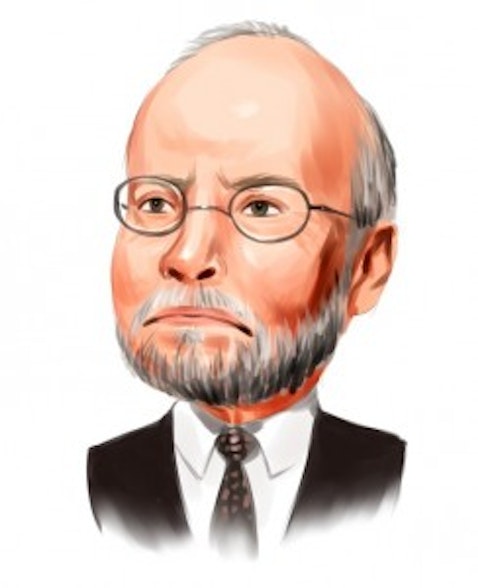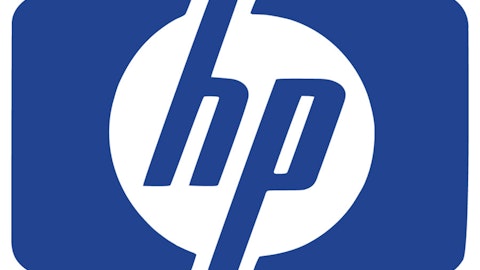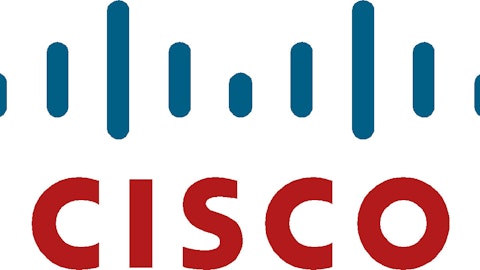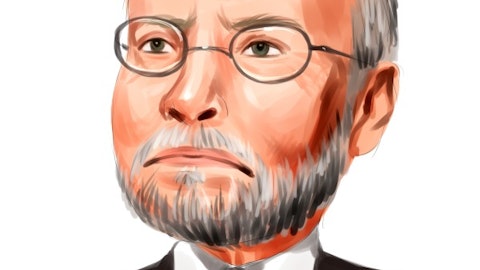
At the end of this year’s second quarter, Elliott Management reported holding 41.4 million shares worth a total of $203.9 million, so it’s useful to explore the details of this move a little further. Throw in the fact that Singer’s fund has a sterling track record – it averages excess returns of 5% a year (since 1994) while managing $15 billion in assets under management – and it’s easy to see why individual investors would be wise to take note of this bearish bet.
Brocade Communications is a California-based technology firm that specializes in data storage and networking equipment, most notably ethernet switches, WAN routers, and a variety of network security appliances. Founded in 1995, Brocade had the typical “tech bubble” experience in the summer of 2000, as its stock price more than tripled during this time frame. At its all-time high, Brocade flirted $130 a share before crashing back below the $10 mark by late 2002.
In 2012 thus far, the stock has traded in the $5 range for much of the year, before rising 25.0% above $6 a share since August 1st. Over the past seven weeks, in fact, this return has been more impressive than many of Brocade’s peers in the data storage industry including: Hewlett-Packard Company (NYSE:HPQ) at -3.6%, Cisco Systems, Inc. (NASDAQ:CSCO) at 18.5%, QLogic Corporation (NASDAQ:QLGC) at 5.2%, and Emulex Corporation (NYSE:ELX) at 14.4%.
Over this same time, Brocade has reported impressive earnings, beating the Street’s estimates in the first three quarters of 2012 by an average of 31.1% each time. In its most recent release, the company reported a Q3 EPS of 14 cents a share, beating the average analyst estimate by 2 cents. By the end of 2012, the consensus is that Brocade is on track to reach earnings of 50 cents a share, up 60.9% from the $0.31 it reported last year. Over the longer term, Brocade’s bottom line is expected to maintain an annual growth rate of 10.3% over the next half-decade. This 5-year expected EPS growth is above the likes of Hewlett-Packard (3.4%), Cisco Systems (8.7%), and Emulex (7.7%). Only QLogic, which expects 12.0% a year, has higher forward-looking estimates.
From a valuation standpoint, however, we can begin to see that shares of Brocade may be overbought at current price levels. The company’s stock trades at a PEG ratio of 2.07; typically any figure above 2.0 signals an overvaluation. More importantly, Brocade’s earnings growth is also trading at a premium to its aforementioned competitors, including Hewlett-Packard (1.67), Cisco Systems (1.46), QLogic (1.00), and Emulex (1.88).
At first glance, one attractive aspect of Brocade is its ability to generate cash. Since the recession, the company has grown its operating (406.0%) and free (1,185.1%) cash flows by impressive rates, but it’s worth mentioning that its stock currently trades at a moderately high Price-to-Cash Flow ratio of 4.9X. This multiple is above its peers’ average by a premium of more than 60%.
While it’s tempting to pursue high-cash flow growth stocks like Brocade, investors must be careful to purchase growth at any cost; this is a perfect example of such a scenario. The same can be said about the company’s earnings, which are expected to expand by solid rates over the next few years, though valuation metrics indicate this growth is already factored into Brocade’s stock price.
Aside from Elliott Management, other hedge fund managers who have decreased their holdings of Brocade in the past quarter include Highbridge Capital Management, Arrowstreet Capital, and GRT Capital Partners. For a complete look at the hedge fund industry’s sentiment towards this stock, continue reading here.




